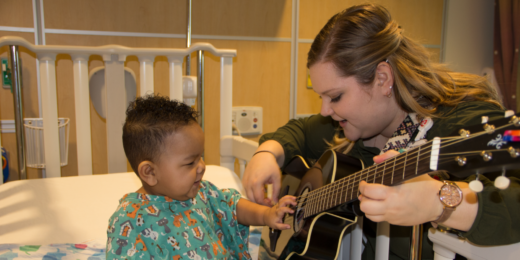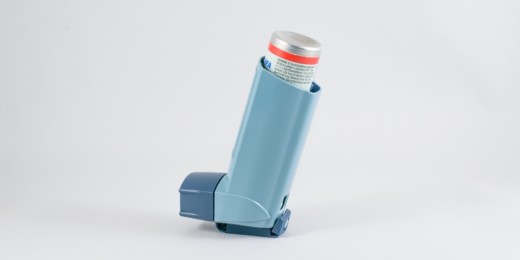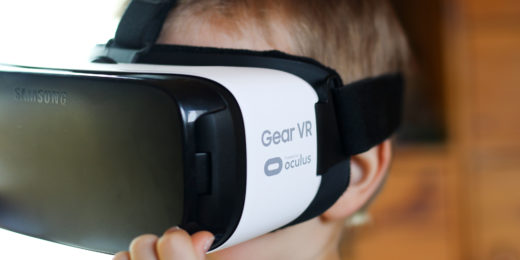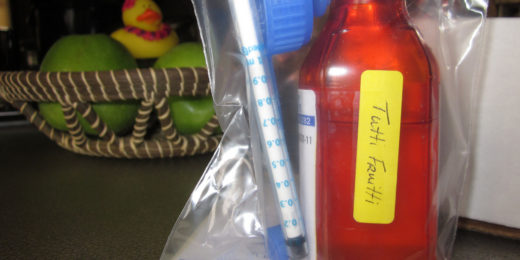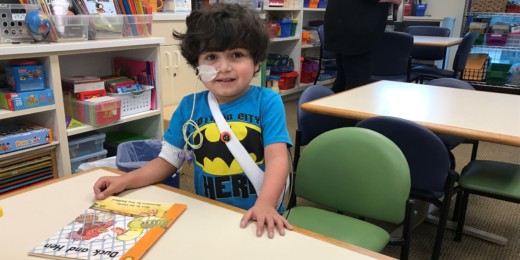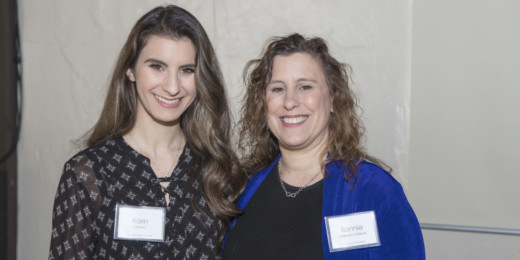Today marks the start of Stanford's third Childx conference, a TED-style event addressing challenges and solutions in child health. Hundreds of pediatricians, educators, scientists and policy experts are coming together for this year’s sessions on the theme “Learn, Collaborate, Innovate.”
Category: Pediatrics
“A toxicological experiment”: Additional study needed on e-cigarette use
Researchers have studied the complex chemical composition of e-cigarette vapors to predict their health impacts on users and those around them.
Music therapy lifts childrens’ spirits at Packard Children’s
A new program at Lucile Packard Children's Hospital Stanford helps young patients express their emotions with songs and musical instruments.
Countdown to Childx: Medical device innovation for kids with chronic disease
Pediatric cardiologist and biomedical innovator Bronwyn Harris talks about the challenge of translating data into better outcomes for kids with chronic diseases.
Stanford and Common Sense Media explore effects of virtual reality on kids
How are kids using virtual reality? What's the effect of VR on their brains? A new report delves into these questions and provides parents and educators with a practical guide on VR use.
Countdown to Childx: Bioethics in pediatrics
How much control should we exert over the genetic makeup of our future children? Bioethicist Jeffrey Kahn will address this as part of his keynote session at next week's Childx conference at Stanford.
Packard Children’s research lowers antibiotic use in newborns
Many healthy newborns are getting antibiotics they don’t need, potentially causing harmful changes in their gut bacteria, but new Stanford research suggests a solution.
Countdown to Childx: What doctors can do to improve health literacy
Health literacy means doctors explaining health care tasks - such as giving a child medication - in doable steps that don’t make you feel like you’re overwhelmed, says health-literacy expert Ruth Parker, a guest at next month's Childx conference.
Procedure helps young girl suffering from seizure disorder
Lucile Packard Children's Hospital Stanford is the only hospital in Northern California using the innovative ROSA™ technology to help children suffering from prolific seizure disorders.
Countdown to Childx: Upcoming conference will highlight collaborative solutions in child health
Stanford’s third Childx conference, at the School of Medicine April 12 and 13, will bring together experts from many fields to discuss challenges in child health.
How a special school helps keep Packard Children’s patients on track
Packard Children’s hospital school is a unique collaboration between the Palo Alto Unified School District and the hospital, offering a fully accredited academic curriculum for patients grades K-12.
Teen nicotine use: Toolkit provides info on the latest trends
The Stanford-based Tobacco Prevention Toolkit offers a resource for educators and young people to learn about tobacco product use and their health.
Tackling the “childcare-conference conundrum”
Primary caretakers face inequitable professional hurdles. The Working Group of Mothers in Science suggest solutions for the child care-conference conundrum.
New method could predict leukemia relapse at diagnosis
A new technique gives doctors an early view of which pediatric leukemia patients will relapse, and may point the way toward better cancer drugs.
Kids see words and faces differently
A new study finds that young children’s brains have not yet fully developed the vision circuits they need to understand words and faces.
Olympic snowboarder offers inspiration for those with congenital heart disease
Stanford pediatric cardiologist Seth Hollander comments on Shaun White's success, and explains the condition called tetralogy of Fallot.




